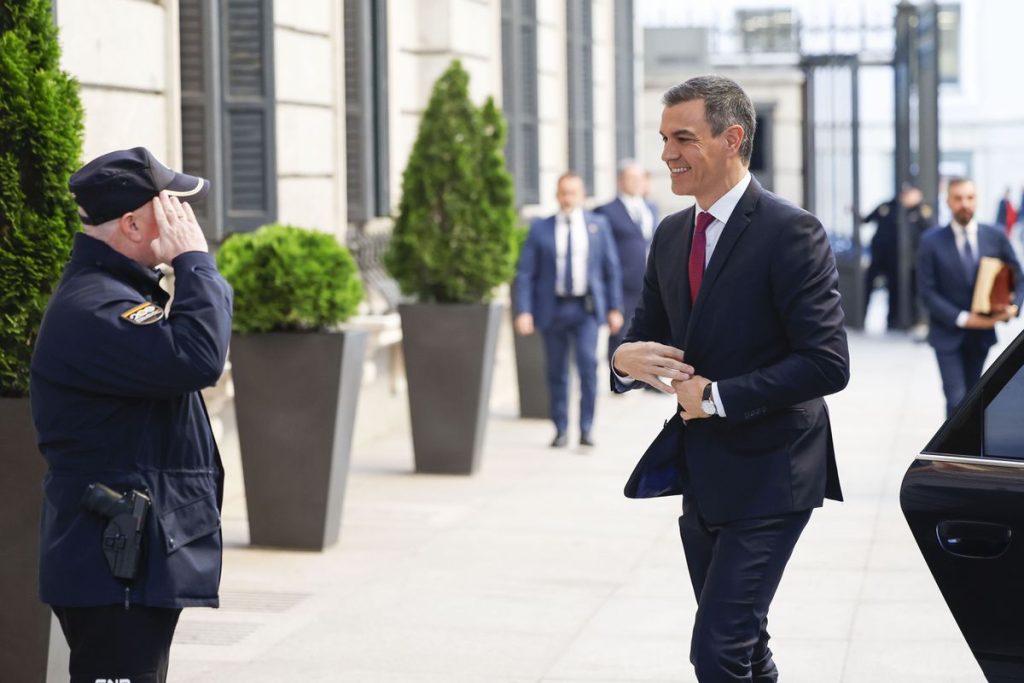Today, on April 10th, President Pedro Sánchez will appear before the Congress to discuss the state of relations with Morocco and to address the topics discussed at the European Council on March 21st and 22nd, as well as the situation in Gaza. Following this, Sánchez will face off against PP leader Alberto Núñez Feijóo in a session of government control, amidst growing tension due to the Koldo case and allegations of tax fraud affecting the partner of the president of the Community of Madrid, Isabel Díaz Ayuso. In the Senate, the Koldo case commission will meet to establish a work plan and the order of testimonies, with debates beginning at 9:00 and voting to take place later in the day after seven other parliamentary debates.
Additionally, the Senate, thanks to the majority held by the PP, will approve a request to the Congress to withdraw the proposed amnesty law, despite it already being processed in the Upper House. At 13:00, the CIS will publish its survey on the Basque elections, providing insights into public sentiment in the region. These developments highlight the political landscape in Spain, with tensions rising between different parties and issues of fraud and corruption coming to the forefront.
The session in the Congress and Senate today will shed light on key issues facing the government, including international relations with Morocco, European Union affairs, and the conflict in Gaza. The Koldo case, along with allegations of tax fraud, further complicates the political environment, with President Sánchez having to defend his government’s actions and decisions. The Senate’s decision to challenge the proposed amnesty law adds another layer of complexity to the day’s proceedings, showcasing the divisions within the Spanish political scene.
The debates and votes scheduled for today will play a crucial role in shaping the future political landscape in Spain, with decisions on key issues such as the amnesty law and public sentiment in the Basque Country being of particular significance. The outcomes of these discussions will have far-reaching implications for the government, as well as for relations with neighboring countries and the broader European Union. The day’s events highlight the importance of transparency, accountability, and effective governance in maintaining public trust and confidence in political institutions.
As the day progresses, it will be important to monitor developments in the Congress and Senate, as well as reactions from political parties and the public. President Sánchez’s appearance before the Congress, the debates on the Koldo case, and the vote on the proposed amnesty law will all be closely watched, as they have the potential to shape future policies and political dynamics in Spain. The release of the CIS survey on the Basque elections will also provide valuable insights into public opinion and preferences, offering key information for policymakers and analysts to consider moving forward.
Overall, today’s events in the Spanish Parliament highlight the complex and evolving nature of politics in the country, with a range of issues and challenges facing the government and lawmakers. From international relations and European affairs to domestic scandals and legislative debates, the day’s agenda underscores the importance of effective governance, transparency, and public accountability in maintaining a healthy and functional democracy. As the day unfolds, it will be crucial to monitor developments and outcomes, as they will have a lasting impact on Spain’s political landscape and future direction.


